IEEE EDUCON 2010 – Keynote Speakers
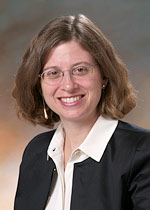
Susan M. Lord – Professor and Coordinator of Electrical Engineering, University of San Diego, San Diego, CA, U.S.A. President of the IEEE Education Society
CV + Presentation
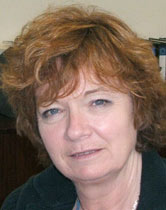
Patricia Manson – Head of Unit, Cultural Heritage and Technology Enhanced Learning in the Directorate General Information Society and Media of the European Commission.
CV + Presentation
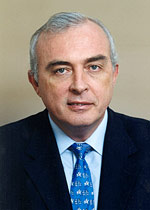
Javier Uceda – Professor of the Automatic Control, Electronic and Computer Engineering Department at Technical University of Madrid. Rector of Technical University of Madrid
CV + Presentation
Susan M. Lord – Professor and Coordinator of Electrical Engineering, University of San Diego, San Diego, CA, U.S.A. President of the IEEE Education Society
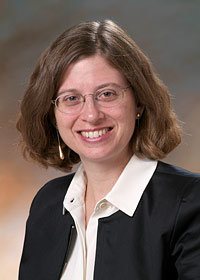
Susan M. Lord received a B. S. with distinction in Electrical Engineering and Materials Science and Engineering from Cornell University and the M.S. and Ph.D. in Electrical Engineering from Stanford University. Author of over seventy publications, her teaching and research interests include electronics, optoelectronic materials and devices, service-learning, feminist pedagogy, lifelong learning, and engineering student persistence. From 1993-1997, Dr. Lord taught at Bucknell University. She is currently Professor and Coordinator of Electrical Engineering at University of San Diego (USD). Her research has been supported by several National Science Foundation (NSF) grants from various programs including a CAREER grant, instrumentation and laboratory improvement (ILI) grants, scholarships for STEM (SSTEM), gender in science and engineering (GSE), and innovations in Engineering Education. She is the Guest Co-Editor of a special issue of the International Journal of Engineering Education on Applications of Engineering Education Research.
Dr. Lord has worked at SPAWAR Systems Center, NASA Goddard Space Flight Center, AT&T, and General Motors. She is a member of the IEEE, ASEE, SWE, and Tau Beta Pi. She has served on the national administrative boards of the IEEE Education Society (EdSoc) and the ASEE Education and Research Methods (ERM) Division. Dr. Lord served as the General Co-Chair of the 2006 Frontiers in Education (FIE) Conference and has served on the FIE Steering Committee since 2006. Dr. Lord served as Vice President of EdSoc for 2007-2008 and President for 2009-2010.
IEEE Education Society: Global Leader in Engineering Education
The IEEE Education Society (EdSoc) is pleased to be a sponsor of EDUCON. EdSoc leaders view this conference as vital for carrying out the mission of our society and believe that EDUCON will be at the forefront of global Engineering Education in the future. In this talk, I will describe some of the history of the Education Society, its recent strategic planning process, and its hopes for the future. What is the Education Society? In April 2009, EdSoc leaders developed new vision and mission statements to introduce EdSoc to the world. The vision of EdSoc is “The IEEE Education Society strives to be the global leader in Engineering Education”. The mission is “The IEEE Education Society is an international organization that promotes, advances, and disseminates state-of-the-art scientific information and resources related to the Society’s field of interest and provides professional development opportunities for academic and industry professionals”. Currently, EdSoc has about 3000 members globally including 30% from IEEE’s Region 8 (Europe, the Middle East, and Africa) and 10% from Region 9 (Central and South America). Strengths of the Education Society include being globally engaged, recognized, and sought after to collaborate in educational innovation, generating quality publications and conferences, and dedicated leadership.
Patricia Manson – Head of Unit, Cultural Heritage and Technology Enhanced Learning in the Directorate General Information Society and Media of the European Commission.
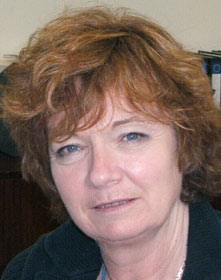
Patricia Manson is Head of Unit, Cultural Heritage and Technology Enhanced Learning in the Directorate General Information Society and Media of the European Commission. She has worked at the European Commission since the early 90s on ICT applications areas in the Community's research programmes and for the past 4 years has been involved in defining the research agenda and subsequent workprogramme for technology enhanced learning research and for its implementation through the funded projects. Prior to joining the Commission she worked in the UK on a research-funded post providing technology and market watch, as well as information and advisory services to the cultural heritage community on the adoption of ICTs.
Learning in the 21st Century: Technology-Enhanced Learning and European Research
The presentation will explore the challenges facing learning in the 21st century and describe the role of European research in technology enhanced learning in this changing context. Experience has revealed the importance of giving equal weight to the technologies, to the learning and to the improvements in learning and this balance is at the core of technology-enhanced learning.
Javier Uceda – Professor of the Automatic Control, Electronic and Computer Engineering Department at Technical University of Madrid. Rector of Technical University of Madrid
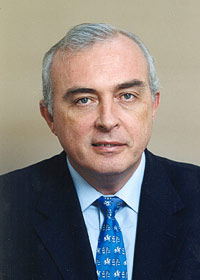
Javier Uceda received the M.Sc. and Ph.D. degrees from the Technical University of Madrid (UPM), Madrid, Spain, both in electrical engineering. Since 1986, he has been a Professor of electronics with UPM. He has published several books and more than two hundred and fifty papers in international journals and conferences and he holds several national and international patents. He has been a member of the Editorial Board of the European Power Electronics and Drives Journal. His research activity has been developed in the fields of Power Electronic and Digital Electronic Systems where he has participated in numerous national and international research projects. His main contributions are in the field of switched-mode power supplies and dc/dc power converters for telecom and aerospace applications. In the year 2000 he was appointed Vice-Rector for Research and Institutional Relations of the Technical University of Madrid, a post which he occupied until his election as Rector of the same University in March, 2004
Dr. Uceda is currently Fellow of the IEEE and a Senior AdCom member of the IEEE Industrial Electronics Society. He is a member of the Editorial Board of the European Power Electronics and Drives Journal and belongs to the Executive Council of the European Power Electronics and Drives Association where he is Vice-President. He has been Associated Editor of IEEE Transactions on Industrial Electronics. He was the Technical Program Committee Chairman of the IEEE Power Electronics Specialists Conference in 1992 and the General Chairman of the European Conference on Power Electronics and Applications in 1995. Prof. Uceda is also member of the Scientific Advisory Board of the Center for Power Electronics Systems (CPES), sponsored by the National Science Foundation in USA. Has received several individual and collective awards among which stands out the IEEE Third Millennium Medal.
Innovation in Engineering Education
Engineering is changing as a consequence of scientific and technological evolution and society needs and demands. Engineers need to understand the structure and behaviour of matter from nanoscale to extremely complex systems. Convergence of scientific and technological disciplines requires also an interdisciplinary approach in education. In this presentation some of the challenges and possible orientations in Engineering Education will be discussed.





